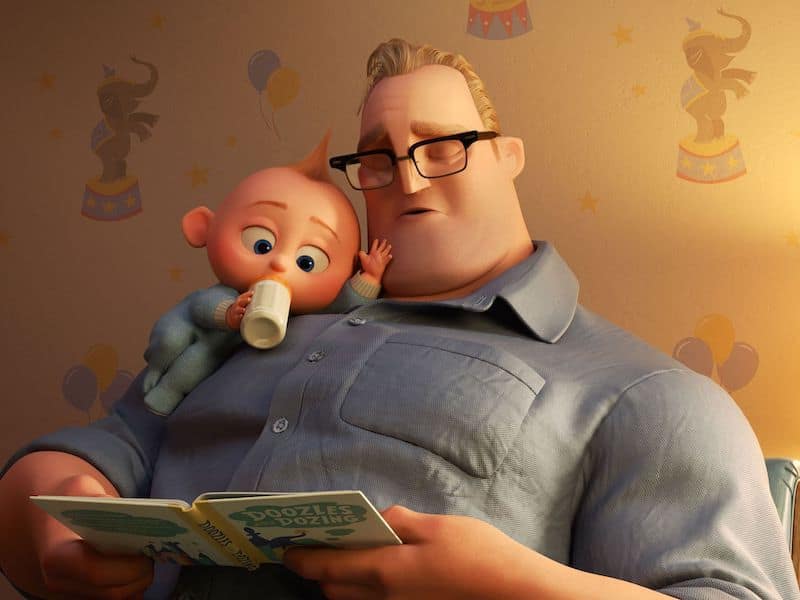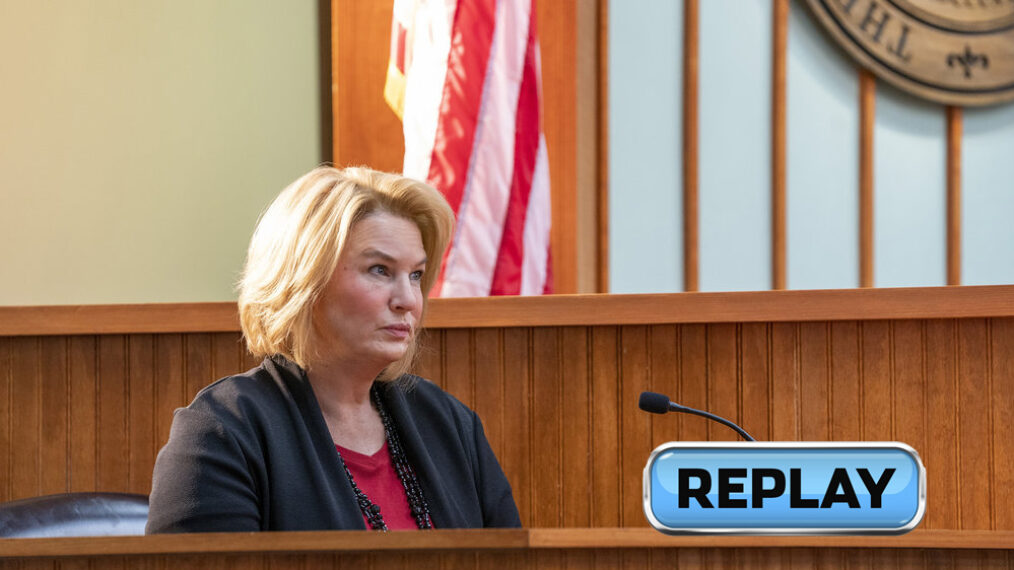#‘Reservation Dogs’ Director Danis Goulet on Ending With Season 3 and the Future of Native-Led TV

In late June, it was announced that Reservation Dogs‘ third season would be its last.
“That’s a difficult line to write and a more difficult decision to make,” co-creator Sterlin Harjo said in an Instagram post announcing the show’s final season ahead of its Aug. 2 premiere. “Almost all television and film depictions about Native people are mostly inaccurate. And most of them have been untruthful.”
Co-created by Harjo and Taika Waititi and debuting in August 2021, the writer would go on to celebrate the “gift” of his series, which helped foment one of the first, major TV network pushes of modern Native and Indigenous storytelling. Reservation Dogs has offered a “different perspective of Indigenous people and our culture,” he wrote. “Most important of all, it has been a dream to collaborate and make a show that is entirely written by, directed by and stars Native people.”
The decision was news to Cree-Métis director Danis Goulet, who after directing last season’s “Mabel” returned for the show’s last go, helming the season three premiere “Bussin” — which focuses on Bear Smallhill (D’Pharaoh Woon-A-Tai) and his efforts with his friends to locate his father in California — as well as the third episode, “Deer Lady.”
“I didn’t go in knowing it was going to be the final season,” she tells The Hollywood Reporter, speaking ahead of Wednesday’s premiere. “So no, I wasn’t necessarily thinking of the end, but it goes without saying that we’re so happy that the show gets to end on the terms that they feel serves the storytelling. This show has meant so much to so many people. I know that everywhere I go, I run into people that just lament the end of Reservation Dogs because of the profound impact it’s been having all over.”
Debuting around the same time as other series like Rutherford Falls and Spirit Rangers — which are also distinctive for having Native and Indigenous talent in its highest creative ranks — and set in present-day, Reservation Dogs has been celebrated for its focus on peoples, cultures and communities that have largely been relegated to the past on Hollywood’s screens. An Independent Spirit Award winner, Critics Choice and Emmy nominee, the series has also, alongside the since-cancelled Rutherford Falls, created working opportunities for a group that still remains largely excluded from the sets and crews of broadcast, cable and streaming TV.
More than half a year after the news came that Peacock had canceled Rutherford Falls after its second season, the news of Reservation Dogs‘ conclusion was difficult for not just its viewership but also for other creatives in the industry. While other shows featuring or led by Native characters like Dark Winds, Stumptown, Dark Waters, Mohawk Girls, Yellowstone and spinoffs 1883 and 1923, and Echo have ebbed and flowed on and off our screens in the last few years (and some, not always without controversy), the ownership that a series like Reservation Dogs has offered Native and Indigenous creatives remains painfully rare.
But its ending doesn’t have to signal the end of a new, more celebrated era of Indigenous storytelling. For Goulet, it was “incredible” and a “big moment” to have a number of shows “come to fruition at the same time.” And while the director — who spent years working with imagineNATIVE Film and Media Arts Festival, was honored with the TIFF Emerging Talent Award and whose debut feature Night Raiders was produced by Waititi — acknowledges the loss of Reservation Dogs, the “potential is huge” for where Native stories can now go because of the series.
“Reservation Dogs set a new bar,” she explains. “There are many of us in the film community, both in the U.S. and up in Canada — and I would actually even say that global Indigenous community — that have been making a collective case to say, ‘Please put us at the helm of our own stories, and we will show you what we can do.’ We’ll show you that our stories matter, that they are marketable to a broad audience, and that we can succeed. Reservation Dogs has beyond proven that point.”
The director, who recalls having first met Harjo in 2005 at Sundance, says that having been “around for a long time” making independent films, she’s seen how “the will and the industry was not very responsive” to “bright-eyed” Native storytellers.
“It was very, very difficult to get support; to get listened to; to have folks in the industry believe that our stories had value; that they can be marketable; that they could appeal to broad audiences,” she recalls. “Having known [Harjo] and how long he was slogging it out in independent film with pennies to make his feature films, and yet it took this long for him to finally get a show off the ground. And it was done with the support of Taika, who was really, really key.”
The Oscar winner has attached his name to a number of Indigenous-led or inclusive films and shows, underscoring how the necessity of a known, tested name in Hollywood for Native creators is still something people are facing, according to Goulet.
“There’s still a lot of skepticism about the lack of experience, and of course, there has to be capacity building in the industry and there has to be mentorship. We know the talent is there, and that the opportunities are just needed,” she tells THR. “Sterlin from the get-go hired all Native directors, he hired an all-Native writing room. He just lifted everybody up and created this entire ecosystem of people who already existed, but then gave them all — myself included — a huge opportunity to be a part of a huge groundbreaking television show.”
That “coming together as a community to say: Let’s get a door open” and the people its brought through is part of why Goulet has hope that what has happened over the last few years won’t fizzle out, even if the game-changers aren’t still here.
“Reservation Dogs is one of the most brilliant shows on television. All of the accolades and all of the amazing reviews of the show, I think, have really shown what is possible. We have been saying for so many years: Just give us the opportunity because we know the talent is there,” she says. “The impact of it both on audiences but also on the film community to get these opportunities for people like myself and the other directors and the writers has just been absolutely incredible.”
With SAG-AFTRA and the WGA both in the midst of a historic work stoppage after the AMPTP failed to come to an agreement with both unions by their respective deadlines this summer, celebrating these achievements will be limited to those like Goulet, who is in the Directors Guild and able to promote the groundbreaking series during its final run.
It’s a difficult place to be in, but for Goulet, it’s an important moment for the work of all creatives, including Native and Indigenous ones. “The first thing is full solidarity, full stop. And the second thing is that this show, and especially episode three, is talking about an incredibly significant piece of American history — about what the country was founded upon, which has to do with violence against children and the very nature of America itself. We have to talk about that, so I’m compelled to talk about it.”
The strike itself — which limits promotional opportunities for both union writers and actors (though somewhat differently) — can also help forge a brighter future for Hollywood’s Native talent.
“The SAG strike and the WGA strike is a reckoning that has been so many years in the making, and that is such a necessary thing to have,” she says. “The industry has changed so much and we have to ensure that the creative people in our industry are able to just make a living wage. It’s completely unacceptable for that not to be the case.”
As for where her fellow creatives will go once the work stoppage is over, Goulet tells THR she has “no doubt” that anyone who worked on the show is capable and prepared to go on other things in the future. But she does have one reservation about next steps for Native and Indigenous storytellers.
“I would hope to see with the end of Reservation Dogs that we shouldn’t have to prove it again,” she says. “I think in a way, what remains to be seen is, will these directors and writers go on to be hired on other things? The early indications are that they are getting hired to be on other shows and that this did open the door for them in a huge way. But I also want to keep the fire at the feet of the industry to say: Trust us, continue to hire us, continue to give us these opportunities. Because Reservation Dogs has really proven what can be done.”
If you liked the article, do not forget to share it with your friends. Follow us on Google News too, click on the star and choose us from your favorites.
For forums sites go to Forum.BuradaBiliyorum.Com
If you want to read more Like this articles, you can visit our Social Media category.



